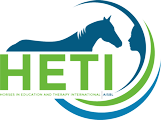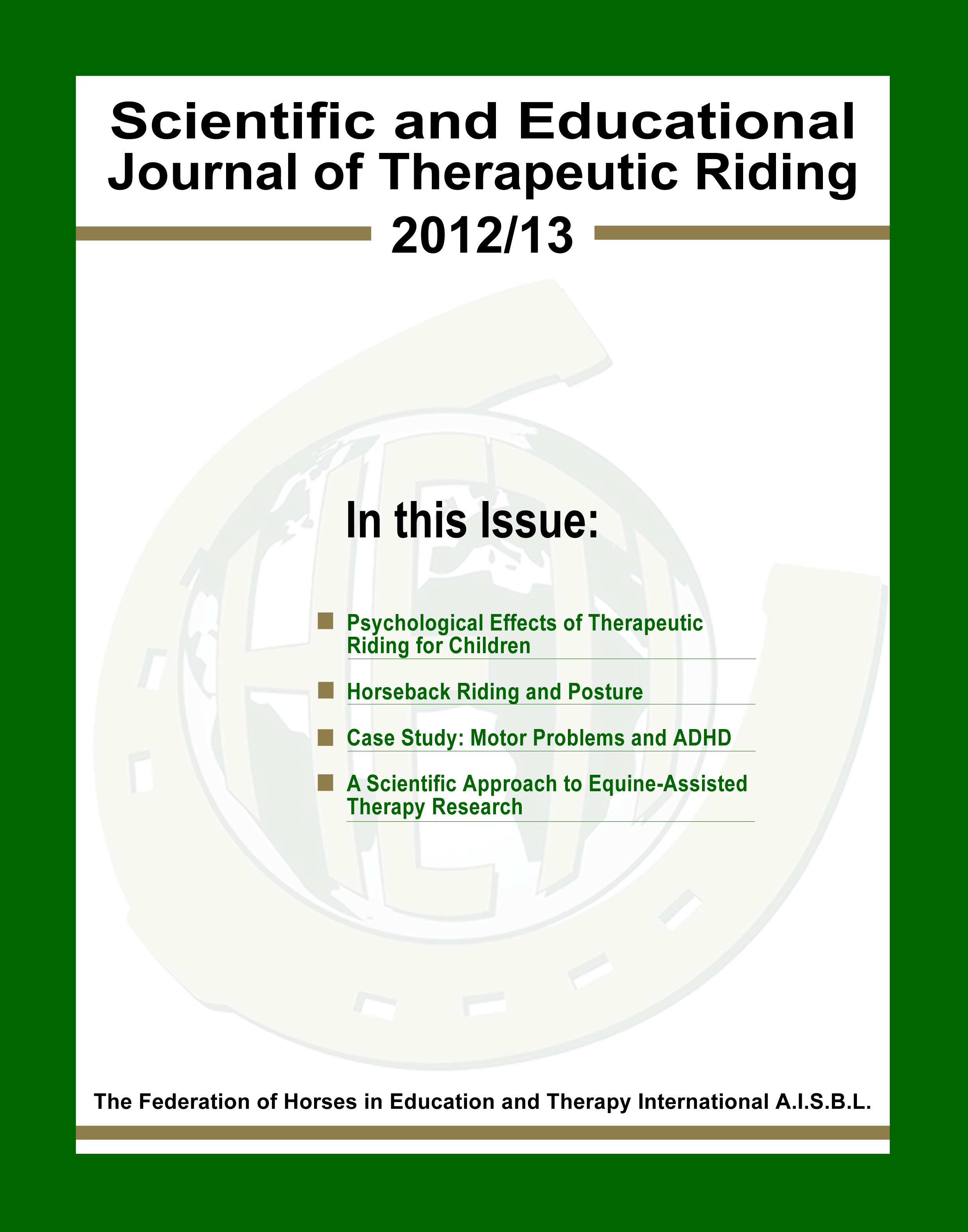The Psychological Effects of Therapeutic Riding (TR) for Children
€10.00
| Author | Andrea Carey, Sarah Murray, Anne Barnfield |
|---|---|
| Year | 2012/2013 |
In this paper we present two studies which investigated the psychological benefits of therapeutic riding (TR) for children, primarily those with disabilities. The studies were run during two TR programs: Study 1, TR delivered in a summer camp; and Study 2, once- weekly TR sessions across two 10-week courses. All participants were tested at SARI Therapeutic Riding (SARI), London, Ontario, Canada. Survey methodology was employed, using standardized, validated questionnaires developed by the American Camp Association to make within-subjects comparisons. Data was collected at pre-camp/TR course, post-camp/TR course and follow-up time points; obtained from parent and child questionnaires, from researcher observation checklists, and through semi-structured interviews with the parents of children who attended summer camp. On all measures the participants of the camp demonstrated statistically significant gains between pre- and post-camp with respect to the domains of positive identity, social skills, physical skills, and positive values (all at p<.01 level). For weekly riding sessions, results from parent surveys were not statistically significant. Observation checklists completed by the researcher did show positive change in behaviours; one-way analysis of variance (ANOVA) comparisons of the domains measured in pre-, mid-, and post-course observations were significant, p<.01.Therefore it appears that TR, delivered in a summer camp or in a 10-week course, can be beneficial to children of all ability levels.

